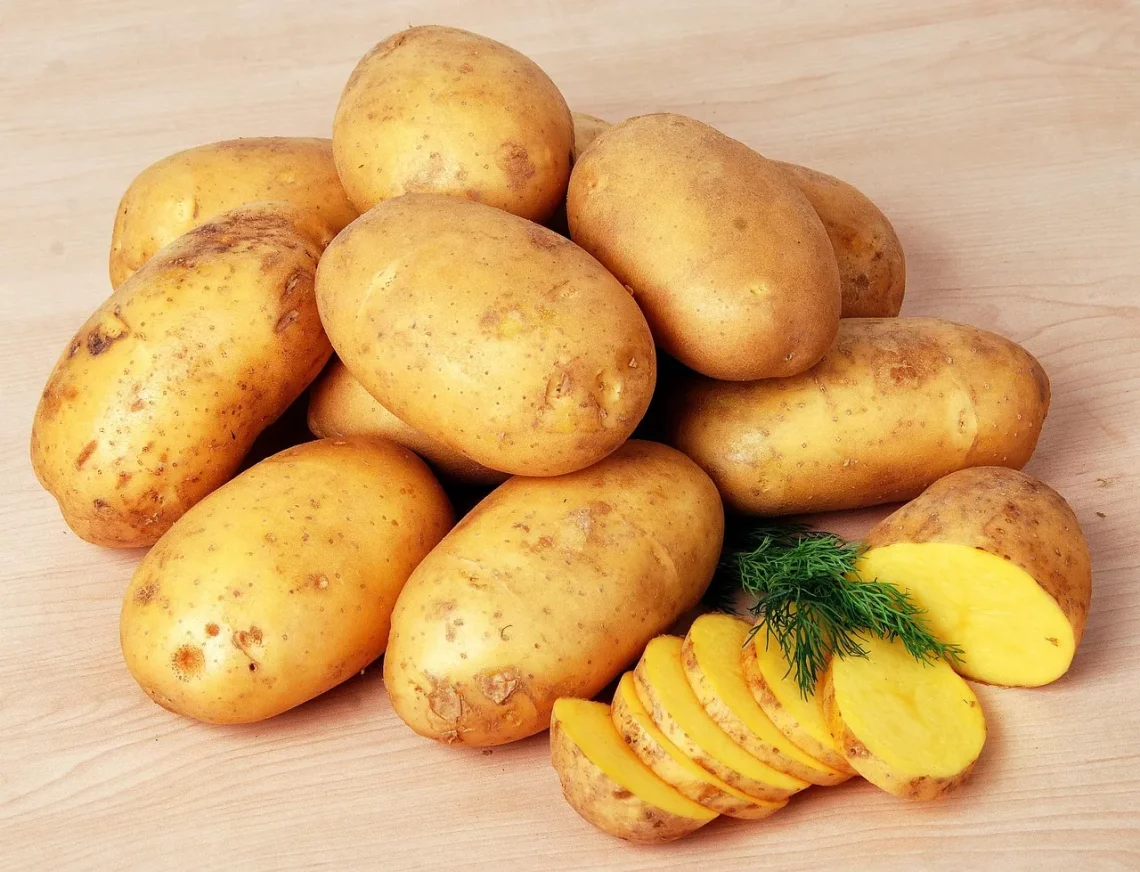
Understanding Carbs in Red Potatoes: A Nutritional Guide
Red potatoes are a staple in many kitchens around the world, prized for their versatility and unique flavor. While they’re often associated with comfort food, they also pack a nutritional punch, particularly when it comes to carbohydrates. Carbohydrates are one of the three macronutrients essential for human survival, providing the body with energy to perform daily functions. However, not all carbs are created equal, and understanding the different types of carbohydrates found in red potatoes can help individuals make informed dietary choices.
Often seen as just a side dish, red potatoes can be the star of a balanced meal. They are not only delicious but also contain vital nutrients, making them a great addition to a healthy diet. With their vibrant skin and creamy texture, red potatoes can enhance a variety of dishes, from salads to casseroles. As people become more health-conscious, it’s important to delve into what makes these potatoes a valuable source of carbohydrates and how they can fit into various dietary plans. Understanding the nutritional profile of red potatoes can empower individuals to utilize them effectively in their meals while reaping the health benefits they offer.
Nutritional Composition of Red Potatoes
Red potatoes are not just tasty; they are also packed with nutrients. A medium-sized red potato typically contains around 150 calories, primarily from carbohydrates, which account for approximately 34 grams. These carbs are primarily in the form of starch, a complex carbohydrate that the body breaks down into glucose for energy. This slow release of energy is beneficial for maintaining stable blood sugar levels, making red potatoes a more favorable option compared to simple carbohydrates found in processed foods.
In addition to carbohydrates, red potatoes are a good source of dietary fiber, providing about 2 grams per medium potato. Fiber is essential for digestive health, as it helps to maintain regular bowel movements and can aid in preventing constipation. Furthermore, a diet high in fiber is associated with a reduced risk of chronic diseases such as heart disease and type 2 diabetes.
Red potatoes are also rich in vitamins and minerals. They are an excellent source of vitamin C, which plays a crucial role in immune function and skin health. Additionally, they contain potassium, which is vital for maintaining healthy blood pressure levels and muscle function. The combination of carbohydrates, fiber, and essential nutrients makes red potatoes a well-rounded food choice that can contribute to overall health.
Including red potatoes in your diet can be a simple way to enhance your nutritional intake. They can be boiled, baked, or roasted, allowing for various preparation methods that can suit different tastes and preferences. Whether you enjoy them as a side dish or incorporate them into main meals, red potatoes provide a satisfying and nutritious option.
The Role of Carbohydrates in Energy Production
Carbohydrates play a fundamental role in energy production within the body. When consumed, carbohydrates are broken down into glucose, which serves as the primary energy source for cells. This process is crucial, especially for brain function, as the brain relies almost exclusively on glucose for energy. Consuming carbohydrates from wholesome sources, such as red potatoes, ensures that the body has a steady supply of energy throughout the day.
Complex carbohydrates, like those found in red potatoes, are digested more slowly than simple carbohydrates, leading to a gradual increase in blood sugar levels. This slow release is beneficial for sustained energy, making red potatoes an excellent choice for athletes or those engaged in physical activities. They can provide the necessary fuel for endurance, helping individuals maintain their performance and avoid the energy crashes that can come from consuming simple sugars.
Moreover, incorporating red potatoes into meals can aid in post-exercise recovery. The carbohydrates replenish glycogen stores in muscles, which is essential for recovery and preparation for future physical activity. Pairing red potatoes with protein sources can further enhance muscle repair and growth, making them an ideal food for athletes and fitness enthusiasts.
In summary, the carbohydrates in red potatoes serve as a vital source of energy for the body. By choosing complex carbohydrates, you can support sustained energy levels, enhance athletic performance, and promote recovery. Red potatoes are a delicious way to incorporate these essential nutrients into your diet.
Health Benefits of Including Red Potatoes in Your Diet
Incorporating red potatoes into your diet offers numerous health benefits beyond just providing carbohydrates. One of the main advantages is their high antioxidant content. Red potatoes contain compounds such as flavonoids and carotenoids, which help combat oxidative stress in the body. This can reduce the risk of chronic diseases, including heart disease and cancer.
The fiber present in red potatoes also contributes to overall health. A diet rich in fiber can help regulate cholesterol levels, support healthy digestion, and even assist in weight management. When consumed as part of a balanced diet, red potatoes can help you feel fuller for longer, reducing the likelihood of overeating.
Additionally, the potassium content in red potatoes plays a crucial role in heart health. Adequate potassium intake is linked to lower blood pressure levels and a reduced risk of stroke. Since red potatoes are a good source of this essential mineral, including them in your meals can contribute to maintaining cardiovascular health.
Another benefit of red potatoes is their versatility. They can be prepared in various ways—mashed, baked, or roasted—and can easily be incorporated into many dishes. This adaptability makes it easier to include them in your diet regularly, ensuring that you reap the nutritional benefits they offer.
Ultimately, the inclusion of red potatoes in your diet can offer a myriad of health benefits. From their antioxidant properties to their contribution to heart health and digestive support, red potatoes are a nutritious choice. By integrating them into your meals, you can enhance both flavor and nutrition.
Cooking and Pairing Suggestions for Red Potatoes
Cooking red potatoes can be a delightful culinary experience due to their versatility and ability to absorb flavors. They can be prepared in numerous ways, each offering a unique taste and texture. Here are some cooking methods and pairing suggestions to enhance your meals with red potatoes.
One popular method is roasting. When roasted, red potatoes develop a crispy exterior while remaining tender on the inside. Tossing them in olive oil, garlic, and your favorite herbs before roasting can elevate their flavor. They pair excellently with rosemary, thyme, or even a sprinkle of Parmesan cheese for added richness.
Another delicious option is to boil red potatoes, which can then be used to make creamy mashed potatoes. Adding a touch of butter and a hint of garlic can create a comforting side dish that complements various main courses. You can also add ingredients like sour cream or chives to enhance the flavor and presentation.
For a lighter option, consider incorporating red potatoes into salads. They can be boiled and then mixed with fresh vegetables, a tangy vinaigrette, or even combined with beans for added protein. This makes for a hearty yet healthy dish that can be served warm or cold.
When it comes to pairing, red potatoes go well with a wide range of proteins, from grilled chicken and fish to vegetarian options like chickpeas or lentils. Their subtle flavor makes them a versatile side that can adapt to different cuisines, whether it’s a classic American barbecue or a Mediterranean feast.
In conclusion, red potatoes are a delicious and nutritious food that can be prepared in various ways. Whether you roast, boil, or incorporate them into salads, these potatoes can enhance your meals while providing essential nutrients.
Please note that this article is for informational purposes only and should not be considered medical advice. Always consult a healthcare professional for any health-related concerns or dietary changes.




